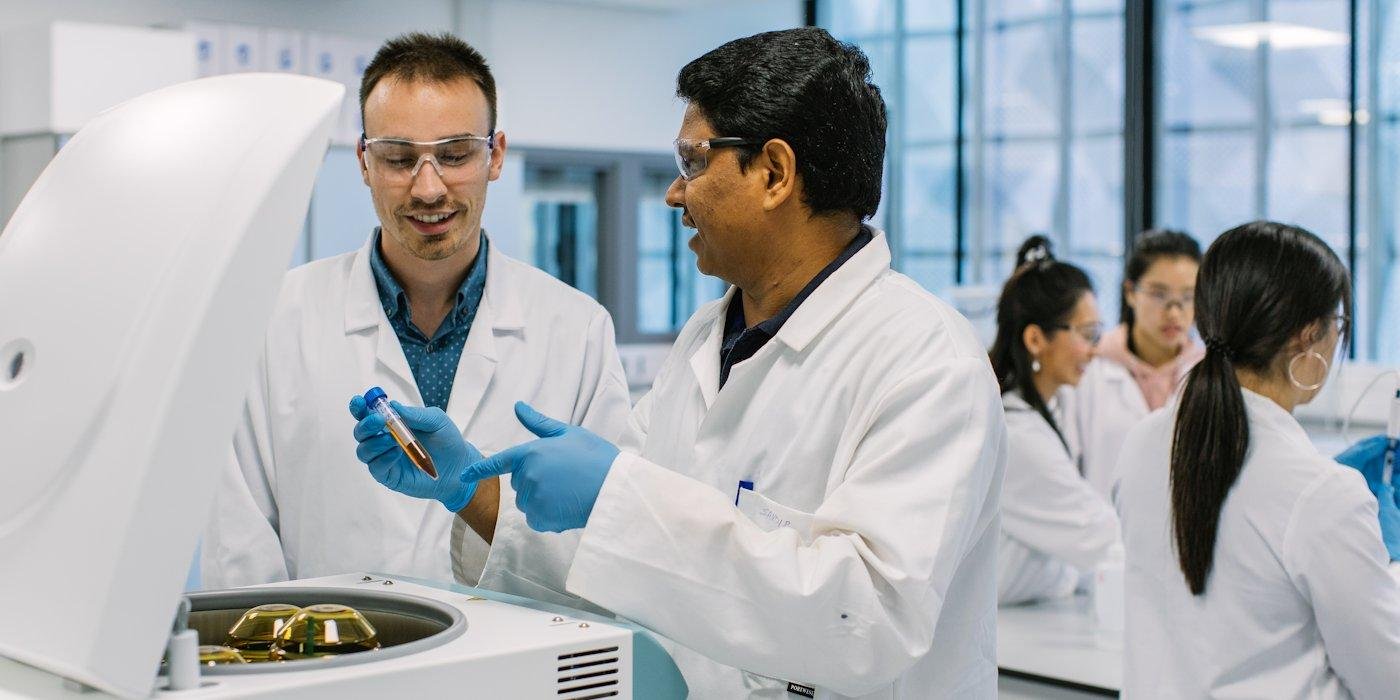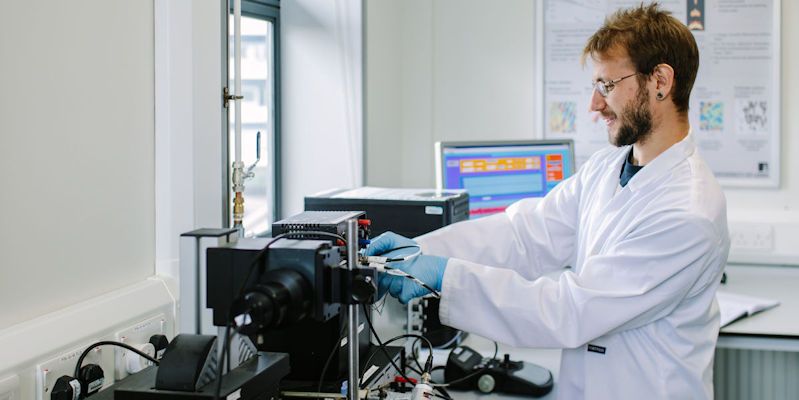Research degrees
PhD opportunities
Visit phd.leeds.ac.uk to search our project ideas, funding opportunities, research areas and PhD supervisors
Search phd.leeds.ac.uk
Research degrees
Whether you’re looking to begin an academic career or want to develop your skills and expertise for a career in industry, studying for a PhD will be a journey that will stimulate your passion for your subject and push you to reach your potential.
We offer different types of degrees including full and part-time PhD degrees, split-site PhD, and a Masters by Research.
The structure of a typical PhD, usually takes between 3 years full-time or 5 years part-time, during which you’ll be generating new knowledge and considering that new information in relation to existing information. You’ll need to be dedicated and passionate about your area of study. But it’ll be well worth it. Being a doctoral student is challenging, but incredibly rewarding.
Make discoveries in phytochemicals
Explore our NAPIC projects and apply today to secure funding for your PhD
Why do a research degree at Leeds?
Our research: The School of Food Science and Nutrition is globally renowned for the quality of its research, and the funding it attracts, meaning we’re able to invest in world-class facilities and academic staff who are actively engaged in cutting-edge research. The results of the 2021 Research Excellence Framework (REF2021) show that 91% of the University of Leeds’s Food Science and Nutrition’s research submitted was rated as either ‘world-leading’ or ‘internationally excellent’.
A strong networks of support: The Leeds Doctoral College connects our whole researcher community and put you in touch with the services, guidance and opportunities you need. From day one, you’ll benefit from a strong support network to guide you through your research degree.
Professional skills development: We think of the whole picture at Leeds. That’s why we offer a range of workshops and courses that'll enhance your skillset further and transfer into your professional career.
Close industry links: You’ll have the opportunity to attend and present at conferences and research events where you’ll meet and network with colleagues from industry and academia. You’ll benefit from our close working relationships with a large number of key companies and academic institutions in the UK and overseas.
Global community: You’ll join a friendly, supportive and diverse community of students and researchers who come from all over the world and have access to wellbeing and support services throughout your degree.
Applying for a research degree
How to write a research proposal
Here's how to produce a document that outlines your proposed research topic and programme of research
More on How to write a research proposalHow to apply
Whether you're applying to a project or proposing your own, follow this step-by-step guide to completing your application.
More on How to applyFees
Find out our research degree fees. If you are a former student of the University of Leeds you may be eligible for a 10% alumni tuition fee bursary.
More on FeesEntry requirements
Find out our PhD and MA/MSc Masters by research entry requirements in the School of Food Science and Nutrition.
More on Entry requirementsOur facilities
Our research is supported by dedicated and experienced technical staff and first-class facilities, allowing us to scientifically develop new processes and products and analyse the quality and composition of foods from the macro- to the nanoscale.
My PhD experience
Ndashe Kapulu
Ndashe investigates how, as part of a forthcoming national strategy, diversifying into soybean production could help Zambian farmers to boost their resilience.
More on Ndashe KapuluSarah Fancourt
Sarah is researching scientific and technological strategies to reduce food waste, such as pathogen inactivation and methods to increase consumption of defected produce
More on Sarah FancourtVicente Antonio Miron Mérida
Vicente's PhD research focuses on developing paper-based biosensors for identification of mycotoxins in the food products
More on Vicente Antonio Miron Mérida








